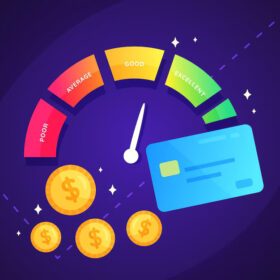What are collection accounts?

Before moving on with the clearest definition of what collection accounts are, you should know that they are one of the main negative information that can be found on your credit report, as much as any other negative information, which can be on your credit record for a long time. 7 years to be exact, which would not be convenient for any credit that wants to be seen as good or excellent.
Now if you are ready to delve into collection accounts. A collection account is a debt account that has been sold by the original creditor to a third party debt collection agency. This happens when you are 180 days behind on payments.
Once the account has been charged off, the original creditor closes your account and often, transfers or sells it to a debt collection agency or debt buyer. Debt buyers usually focus on buying debt accounts and hire debt collection companies to attempt to collect the debt.
No matter who the debt was transferred from or when it was transferred, the Fair Credit Reporting Act (FCRA) allows credit bureaus to legally report collections up to seven years after the date of first delinquency, also known as (DOFD) as the date of first delinquency.
According to the credit bureau Experian, the date of original delinquency is the first reported delinquency. That is, if you have a 30-day delinquency reported and never catch up on payments, then the delinquency would later be reported as a 60-day delinquency and finally as a 90-day delinquency.
The seven-year period after which the delinquency decreases begins with the first missed payment, the 30-day delinquency. If the debt is sold to a collection agency, the original account and the collection account will be removed from your credit report seven years after the initial delinquency, according to Experian. But remember, each credit bureau has its policies.
The 180-day grace period is said to allow for insurance benefits to apply. Therefore, the seven-year timeline begins after 180 days, not after a 30-day delinquency.
Collection agencies begin reporting to the credit bureaus as soon as they acquire your account. By reporting negative information about your account to the credit bureaus, debt collectors attempt to motivate you to pay the debt.
Generally, collection agencies report to the credit bureaus each month, as do most other types of commercial lines on your credit report. Therefore, if you have a collection account, you will most likely notice the collection agency reporting your account to the credit bureaus once a month.
If you already have an account in collections, meaning that the original creditor has already closed your account and transferred it to another owner, you should not pay the lender from whom the loan originally originated. The debt now belongs to someone else, so it would not make sense to pay the original creditor.
Having one or more collection accounts on your credit report can turn you into what the credit bureaus call; bad credit, since a collection account on your credit report means you were unable to make payments on a debt.
Which is a big red flag to lenders that you could default on a loan again. Therefore, a collection counts as a major derogatory item on your credit report, which means your credit score will likely suffer a significant drop if you have an account in collection.
Collections are considered major derogatory items, so they can lead to a sharp decline in your credit score.
Collections are considered major derogatory items, so they can lead to a sharp decline in your credit score.
However, collections on low balances may not affect your score at all, depending on the credit scoring model being used to calculate your score, such as VantageScore or a FICO credit score.




